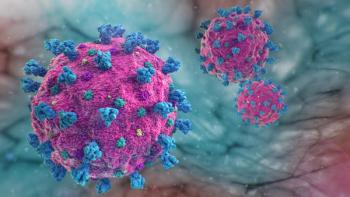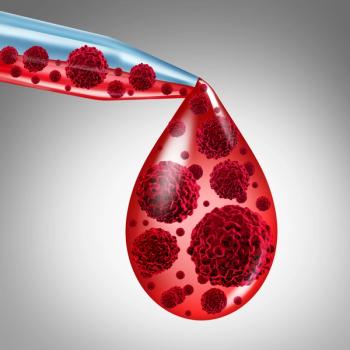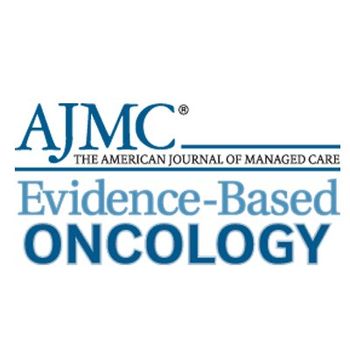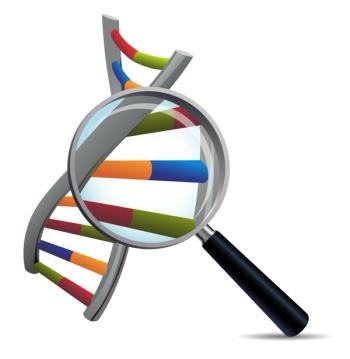
Besides demonstrating noninferiority in objective response rates, zanubrutinib also showed a statistically significant lower risk of atrial fibrillation or flutter compared with ibrutinib.

Besides demonstrating noninferiority in objective response rates, zanubrutinib also showed a statistically significant lower risk of atrial fibrillation or flutter compared with ibrutinib.

The findings come from the group’s review of over 30 years’ worth of research of the presence of autoimmune cytopenias and autoimmune diseases in lymphoid and myeloid neoplasms.

The researchers credit wider availability of molecular testing and better understanding of the diseases for the emerging targeted therapies in development.

Patients who cut their calorie intake by at least 10% and exercised modestly were 70% less likely to have remaining leukemic cells in their bone marrow 1 month after starting chemotherapy, according to results of an early study.

Reversible Bruton tyrosine kinase (BTK) inhibitors may play a key role in treatment when it comes to addressing resistance stemming mutations in the active site (Cys481) that emerge from treatment with irreversible BTK inhibitors.

Classical mantle cell lymphoma (MCL) and 2 aggressive variants exhibited similar rates of negativity for the CD5 marker, but further testing may be needed in certain cases to avoid misdiagnosis with diffuse large B-cell lymphoma (DLBCL).

Pfizer/BioNTech’s COVID-19 vaccine appears to be 100% effective at preventing adolescent infections; Vyxeos approved for pediatric secondary acute myeloid leukemia (AML); study results show a 62% drop in pediatric respiratory illness over the past year.

More than two-thirds of patients with chronic lymphocytic leukemia (CLL) survived at least 2 years but were highly susceptible to adverse events (AEs), in a recent study.

A survey released this month of US patients with blood cancers shows a somewhat surprising level of hesitancy about receiving a COVID-19 vaccine, but because patients with cancer were not included in clinical trials, the situation for this population is somewhat nuanced.

Study findings shed a light on the role of minimal residual disease (MRD) status and type of postremission therapy in the prognosis of patients with intermediate-risk acute myeloid leukemia (AML) who do not have FLT3-ITD, NPM1, and biallelic CEBPA mutations.

Whole-genome sequencing (WGS) is at least as accurate as conventional tests when it comes to genomic profiling in patients with acute myeloid leukemia and myelodysplastic syndromes.

A recent study tries to discern if treatment for chronic lymphocytic leukemia (CLL) or CLL-like disease accelerates the risk of myeloid neoplasms.

The FDA approved axicabtagene ciloleucel (Yescarta) for the treatment of adult patients with relapsed or refractory follicular lymphoma following 2 or more lines of systemic therapy.

Updates on Waldenström macroglobulinemia treatment formed by an international consensus panel were recently finalized and published in The Lancet Haematology.

Break Through Cancer, a collaborative research effort between 5 top US academic cancer centers, aims to pursue solutions to some of the most difficult challenges in cancer research.

Hypertension, anemia, and infection were the most common adverse events associated with mantle cell lymphoma (MCL), while hepatotoxicity, stroke, and renal failure were the costliest per patient.

Tanya Siddiqi, MD, director of the chronic lymphocytic leukemia program at Toni Stephenson Lymphoma Center provides insights on what the arrival of liso-cel could mean in the treatment landscape.

Older adults with acute myeloid leukemia (AML) saw increased overall and relapse-free survival, as well as preserved quality of life, following oral administration of 300-mg azacitidine.

The newly approved expanded label includes data from the final analysis of the phase 3 iNNOVATE study of ibrutinib plus rituximab vs rituximab alone.

Using CRISPR, researchers were able to repeat the step-by-step conversion of a normal cell into a malignant one in acute myeloid leukemia (AML).

Patients with mantle cell lymphoma (MCL) who discontinue acalabrutinib may have different outcomes depending on why they stopped and their eligibility for other therapies.

Results from a new clinical trial suggest that discontinuation of tyrosine kinase inhibitors (TKIs) is safe, feasible and is associated with improvements in patient-related outcomes (PROs) in chronic myeloid leukemia (CML).

A CAR T-cell therapy that promises fewer side effects, and possibly lower hospital costs, wins approval after lengthy delays.

The novel, first-in-class, small molecule prompted high rates of clinical response and molecular remission in patients with oligoblastic acute myeloid leukemia (AML).

Higher mortality rates were seen among patients with acute lymphoblastic leukemia (ALL) who were considered obese, in a recent study of patients treated at Mayo Clinic.

259 Prospect Plains Rd, Bldg H
Cranbury, NJ 08512
© 2025 MJH Life Sciences®
All rights reserved.
